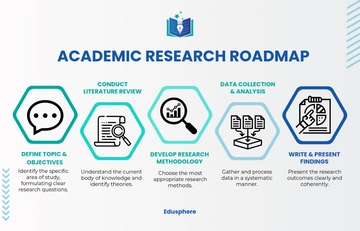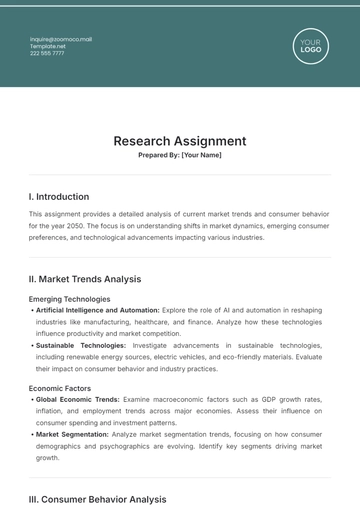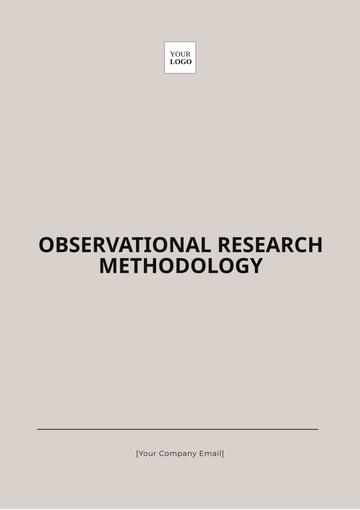Academic Research Format
The Role of Renewable Energy in Reducing Carbon Emissions
By: [Your Name]
Abstract
This research analyzes the role of renewable energy sources in reducing carbon emissions. Data was collected from various renewable energy projects and their impact on carbon emissions over the past decade. The study finds that renewable energy significantly reduces carbon emissions and offers recommendations for increasing the adoption of these energy sources.
Introduction
Background: The increasing concern over climate change has led to a focus on renewable energy as a solution to reduce carbon emissions.
Problem Statement: Despite the known benefits of renewable energy, its adoption is still not widespread enough to make a significant impact on carbon emissions globally.
Objectives: This research aims to evaluate the effectiveness of renewable energy sources in reducing carbon emissions and identify strategies to enhance their adoption.
Significance: The findings will provide valuable insights for policymakers, energy companies, and environmental advocates on promoting renewable energy to combat climate change.
Literature Review
Review of Existing Research: Previous studies have demonstrated the potential of renewable energy sources, such as solar, wind, and hydro, in reducing carbon emissions.
Gaps in Research: There is a need for more comprehensive studies that quantify the long-term impact of renewable energy projects on carbon emissions.
Theoretical Framework: This research is based on the principles of sustainable development and environmental economics.
Methodology
Research Design: The study employs a mixed-method approach, combining quantitative data analysis with qualitative case studies.
Participants: Data was collected from various renewable energy projects and industry experts.
Data Collection: Quantitative data on carbon emissions was gathered from official reports, while qualitative data was obtained through interviews with industry experts.
Data Analysis: Statistical techniques were used to analyze the quantitative data, and thematic analysis was applied to the qualitative data.
Results
Data Presentation: The research findings are presented using tables, graphs, and charts to illustrate the impact of renewable energy on carbon emissions.

Analysis: The results indicate a significant reduction in carbon emissions in regions that have heavily invested in renewable energy projects.
Discussion
Interpretation: The findings suggest that renewable energy is an effective tool in reducing carbon emissions, but its adoption is hindered by economic and policy barriers.
Comparison: The study compares the results with existing literature and identifies areas where further research is needed.
Limitations: The research acknowledges limitations such as the availability of data and the varying impact of different renewable energy sources.
Future Research: Suggestions for future research include exploring the socio-economic impacts of renewable energy adoption.
Conclusion
Summary: The study confirms the positive impact of renewable energy on reducing carbon emissions and highlights the need for supportive policies and investment.
Recommendations: Recommendations include increasing financial incentives for renewable energy projects and implementing stricter regulations on carbon emissions.
Appendices
Appendix A: Data Tables
Year | Renewable Energy Investment ($M) | Carbon Emissions (Million Tons) |
|---|
2055 | 100 | 450 |
2056 | 150 | 430 |
2057 | 200 | 410 |
2058 | 250 | 390 |
2059 | 300 | 370 |
2060 | 350 | 350 |
2061 | 400 | 330 |
2062 | 450 | 310 |
Appendix B: Interview Transcripts
Appendix C: Supplementary Information
Acknowledgments
I would like to extend my gratitude to the following individuals and organizations for their support and contributions to this research:
Dr. Emily Clark: For providing invaluable insights and feedback on the research methodology.
The Green Energy Foundation: For funding the research and supporting data collection efforts.
The Renewable Energy Association: For access to industry reports and data essential for the analysis.
My Research Team: For their dedicated efforts in data analysis and report preparation.
Research Templates @ Template.net































